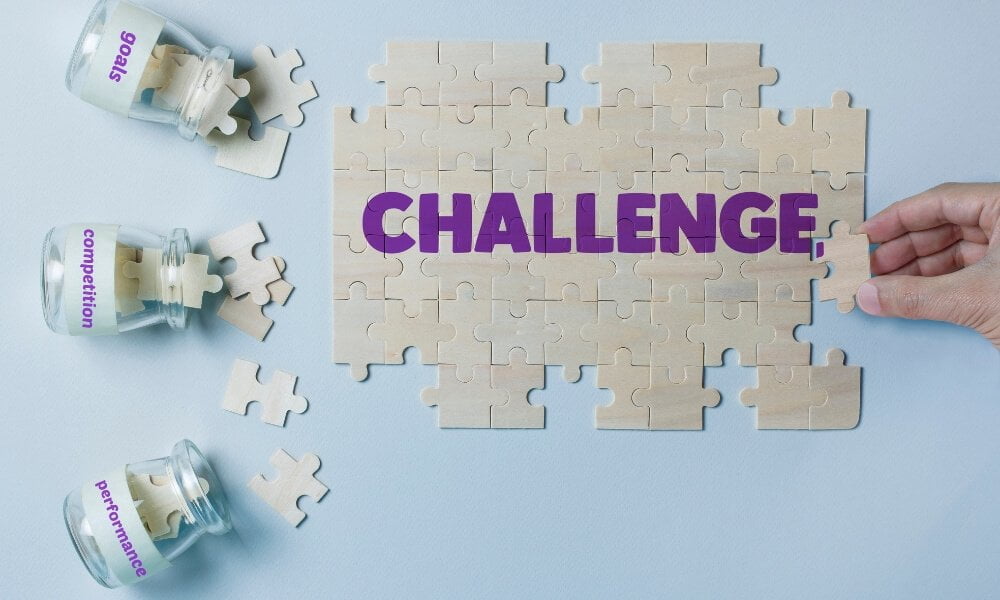Table of Contents
ToggleWhen it comes to web and graphic design, imagination is more than a sought-after quality; it’s an indispensable element that infuses richness and individuality into your creations. The faculty to produce novel, distinct designs positions you ahead of the competition, making you the go-to choice for businesses and individuals who appreciate the significance of compelling design. Yet, like any other skill, creativity demands nurturing and ongoing refinement. This blog post is venturing into ten actionable strategies to amplify your web and graphic design creativity.
Decoding Creativity in Web and Graphic Design
Creativity in the web and graphic design world represents the capacity to envision and implement one-of-a-kind ideas that effectively relay a message while resonating with the aesthetic preferences of the intended audience. It transcends the mere act of creating something visually pleasing—it’s about architecting pragmatic, pertinent, and striking designs.
Creativity acts as a linchpin in the triumphant execution of design projects. It molds everything from the initial conceptualization to the final realization of the design. Furthermore, creative thought empowers designers to stay one step ahead of trends in a constantly transforming industry and continually deliver trailblazing solutions.
Using Stock Photos for Visual Brainstorming

Stock photos are an excellent source of inspiration for designers, offering multiple visual ideas, colors, compositions, and themes that can spark creativity. These photos can be a cost-effective solution for enhancing visual appeal.
To use stock photos effectively for brainstorming, you should approach them with a specific goal in mind. You may look for color scheme ideas, composition structures, or unique themes. When you download stock photos, keeping these criteria in focus can give you a treasure trove of ideas to weave into your designs.
Embrace Diverse Inspirations
One of the best ways to fuel your creativity is to expose yourself to a wide range of inspirations. This could be anything from nature and architecture to different cultures, art forms, and historical periods. The world around us is filled with design ideas waiting to be discovered.
To embrace diverse inspirations, you must keep your mind open and your observations sharp. Carry a notebook or use a digital note-taking app to jot down ideas as they come. Inspiration often strikes when least expected, and keeping a record can help you recall and apply these ideas later in your designs.
Practice Design Sketching
Sketching holds a principal place in a designer’s arsenal. It empowers you to visualize and refine your ideas swiftly, nurturing creativity and innovation. Furthermore, manual sketching liberates you from software constraints, stimulating out-of-the-box thinking.
To effectively practice design sketching, start by sketching your ideas as soon as they come to mind. Don’t worry about perfection; focus on getting your ideas on paper. Gradually, you’ll notice an improvement in your ability to translate your thoughts into visual form, fueling your creative process.
Drawing Wisdom from Other Designers
Deriving insights from your peers is a potent method to galvanize your creativity. Fellow designers can provide fresh viewpoints, varied styles, and inventive resolutions that may not have occurred to you. But remember, learning from others doesn’t equate to replicating their work. It’s about comprehending their thought trajectory, their application of design principles, and their problem-solving techniques.
To gain effectively from other designers, initiate by routinely studying design portfolios, subscribing to design blogs, and engaging in design communities. Dissect the designs that captivate you and strive to understand what renders them effective. This habit will elevate your design aptitude and inspire inventive thinking.
Participate in Design Challenges

Design challenges expose you to various design styles and ideas from other participants that provide specific briefs that push you to think outside the box, boosting your creativity.
You can find design challenges on various online platforms. Whether it’s logo design, web design, or UX/UI design, you can easily find a challenge that fits your interests. Participate, improve your design skills, and strengthen your portfolio.
Regularly Update Your Design Knowledge
Staying updated with the latest trends is crucial in the ever-evolving web and graphic design field. Design trends often reflect changes in technology, culture, and user preferences, directly impacting how we communicate visually.
To keep abreast of the latest trends, subscribe to industry-leading design blogs, follow influential designers on social media, and join design communities. Additionally, consider attending webinars, workshops, and design conferences to learn from industry experts.
Dabble in Different Design Disciplines
Creativity often thrives at the intersection of different disciplines. By exploring different areas of design, you can gather diverse ideas and techniques that can fuel your creativity. For example, learning about architectural design might inspire new ways of thinking about structure and space in your web designs.
To dabble in different design disciplines, you can take online courses, read books, or even attend local workshops. The goal is not necessarily to master these disciplines but to expand your creative horizons.
Cultivate a Creative Workspace
Your surroundings can wield a significant influence on your creativity. A workspace that kindles creativity can render the design process more gratifying and fruitful. This could translate to maintaining a neat and organized desk, showcasing inspiring artwork, or tuning into music to invigorate your creative juices.
To craft a creative workspace, contemplate what ambiance sparks your creativity. Some individuals thrive in a serene and minimalist space, while others favor a dynamic and visually engaging environment. Experiment with varied configurations until you pinpoint what resonates with you.
Practice Mindfulness and Observation
Mindfulness and observation are powerful tools for boosting creativity. Mindfulness involves being present in the moment, which can help you notice details that you might otherwise overlook. On the other hand, observation involves actively looking for design ideas in your surroundings.
Practicing mindfulness can be as simple as taking a few minutes daily to focus on your senses. For observation, take regular walks or trips specifically to find design inspiration. This could be a visit to a local museum, a walk in nature, or even a trip to a different city or country.
Conclusion
Creativity in web and graphic design is not a mysterious talent reserved for the lucky few. It’s a skill that can be nurtured and developed with practice and the right strategies. By embracing diverse inspirations, experimenting with different tools, sketching your ideas, learning from other designers, using stock photos for brainstorming, participating in design challenges, staying updated with the latest trends, dabbling in different design disciplines, cultivating a creative workspace, and practicing mindfulness and observation, you can significantly boost your creativity.






